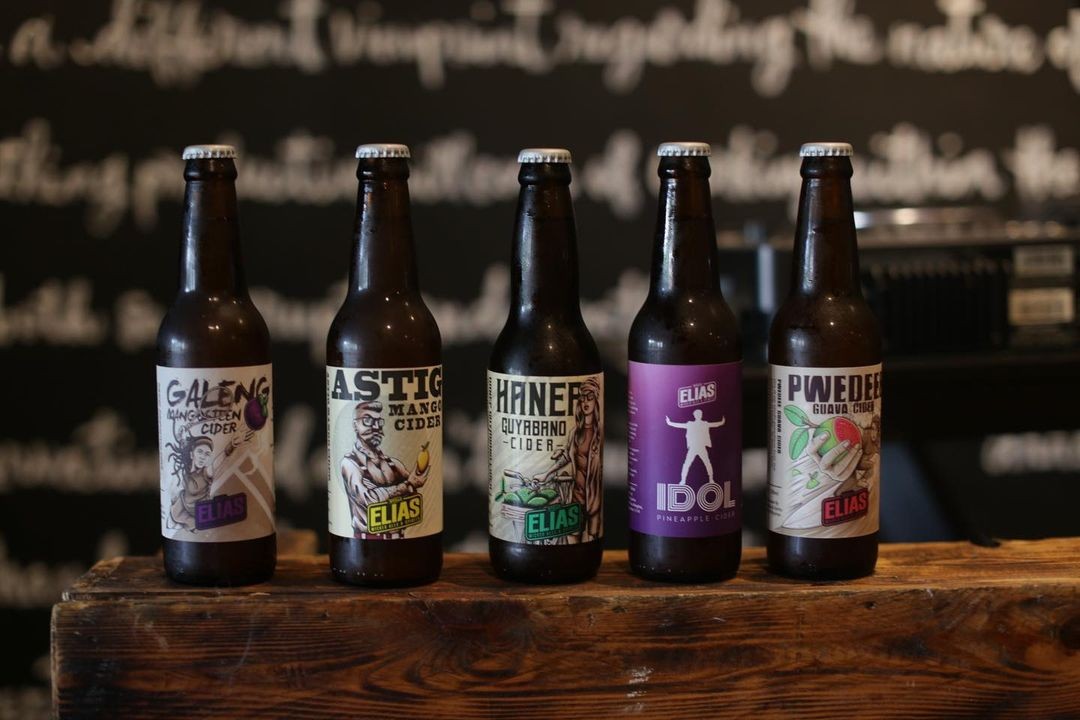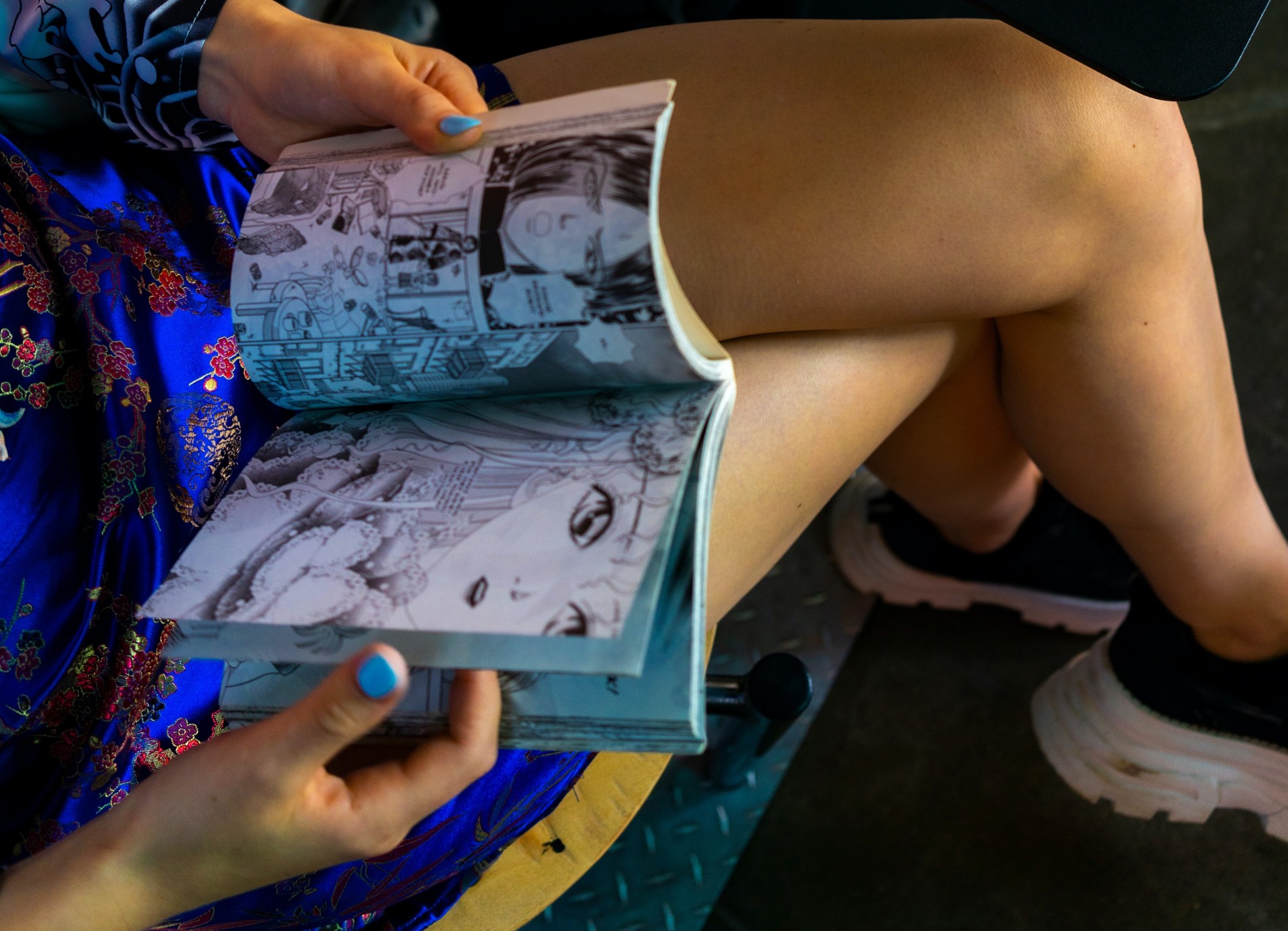
Infusing Character Through Craft: Raoul Masangcay on Making Elias’s Wicked Brews
By Ysmael Suarez
October 27, 2021
As the founder and head brewer of Elias Wicked Ales & Spirits, Raoul Masangcay’s approach to brewing craft beers and hard ciders is immensely technical and passionate – always enthusiastic about how he can advance his brews.
He has one bottle called “Hanep” – a sweet and milky guyabano cider with a crisp cider fizz. Creating hard ciders with local flavors was Masangcay’s first priority when he started Elias in 2018. “I always wanted to promote our local fruits,” he proudly stated. “That’s why I came up with the guyabano, which is very abundant here, [as well as] mangosteen and dalandan.”
At one point, Masangcay even played around with durian. The wafting smell of the fruit in the tap room (before the pandemic) was enough to pique the curiosity of customers. He always made it a point to make Elias distinctly Filipino, which is evident from the Noli Me Tangere reference in the brewery’s name.
Of course, in making the signature indigenous fruit ciders, Masangcay included the Philippines’ top fruit export—mango. The “Astig” is a sweet hard cider with hints of mango and apple, ending on a slight sour tinge.
Elias worked on a variety of local fruits early on, but put limits when they grew as a brewery. “When we were small, we were thinking, ‘I can try a lot of things.’ But when you're expanding, you have to sustain yourself. That’s when we [focused] on specific products and flavors.”
After establishing a solid roster of Filipino fruit ciders, Elias turned to the standard brewery fare of craft beers, such as their “Hey Crush” New England style Session Pale Ale, a Russian Imperial Stout called the “Damaso,” and the “Suppa Fly” IPA.
Brewing Pains
Masangcay would choose hard cider over beer if given the choice – not just out of personal preference, but out of practicality too. He explained that ingredients for brewing cider are more accessible to import than those for beer. To him, that is the challenge for craft beers in the Philippines right now. “The ingredients, the supply chain – [it’s] all imported,” he said. The main ingredients used for craft ales and beers – hops, barley, yeast, and malt – are imported from countries such as the US, UK, and Australia.
This is why Elias keeps its tap menu vastly diverse, adjusting to ingredients available during the season. “Until now, we’re still working on our supply chain. That’s the reason we can easily create another product because we can’t just stick to one, [especially] if the supply of that ingredient is not reliable.”
This poses a supply-demand balance for Elias and its local peers. Distributors of these ingredients can't bring in too much due to longevity issues. A solution to this, Masangcay supposed, is to encourage more people into the brewing habit. With many people curious about the process, Elias also sells packaged hops, malts, and fermenters. “The idea is to help grow the local craft beer industry,” he shared, believing that growing the local industry will make acquiring ingredients in bulk more feasible. “The more home brewers, the better.”
Brewed By The Books
Masangcay is currently in the United States as a quality engineer – a career that lends itself to his brewing craft. He learns about new ingredients and techniques from his friends in Virginia, where he currently lives, who also have breweries of their own, albeit at larger scales. The current setup is Masangcay sends over ingredients and shares procedures he’s learned to Manila, where it is replicated by three of his on-site brewers (“I’m very lucky to have them.”)
Masangcay currently holds two certifications that help him maintain the quality of his craft. The Certified Cicerone involves differentiating and pairing beers with styles and flavours, while the Beer Judge Certification Program (BJCP) is more methodical. “It’s more intensive, [being based] on aroma, flavor, mouth feel, appearance, and overall impression,” Masangcay elaborated. He compares the Certified Cicerone as an MBA degree, being consumer-facing forward, while the BJCP gives the intensive impression of a science or engineering degree.
Upcoming Brews
Elias currently rotates between thirty different brews, but Masangcay still develops new recipes whenever he can. He observed how excited consumers get when a new brew is released, which motivates him. “We focus on our flagship ciders and beer, but we also brew seasonal and special brews because the only way to grow is to try new things,” he said. For example, while traditional beers are fermented using the Saccharomyces yeast, sour ales use Lactobacillus – the same bacteria found in Yakult that gives it its mouth-puckering yogurt flavour. Masangcay hopes to introduce sour ales to the Filipino market, which is currently popular in the United States.
A hard seltzer is also in the works, which is produced using spritz – a fermented sugar. “We have a lot of sugar back [in the Philippines], and this is probably the [closest to a product made purely with local ingredients],” he said, stressing that a 100% locally made brew is difficult to do since there are little to no local suppliers for yeast.
“It’s only the yeast that is the limitation there. I mean, you can ferment anything.” He paused for a bit. “Well, maybe lambanog, right?” His eyes widened, “Lambanog is fermented tuba. The [yeast] it uses is similar to what’s in sake or rice wine.”
It wouldn’t be the wildest thing he made a brew from. “I haven’t tried it, but that’s a good point,” he grinned. “Now that we’re talking about it, I’m challenged to try.”


